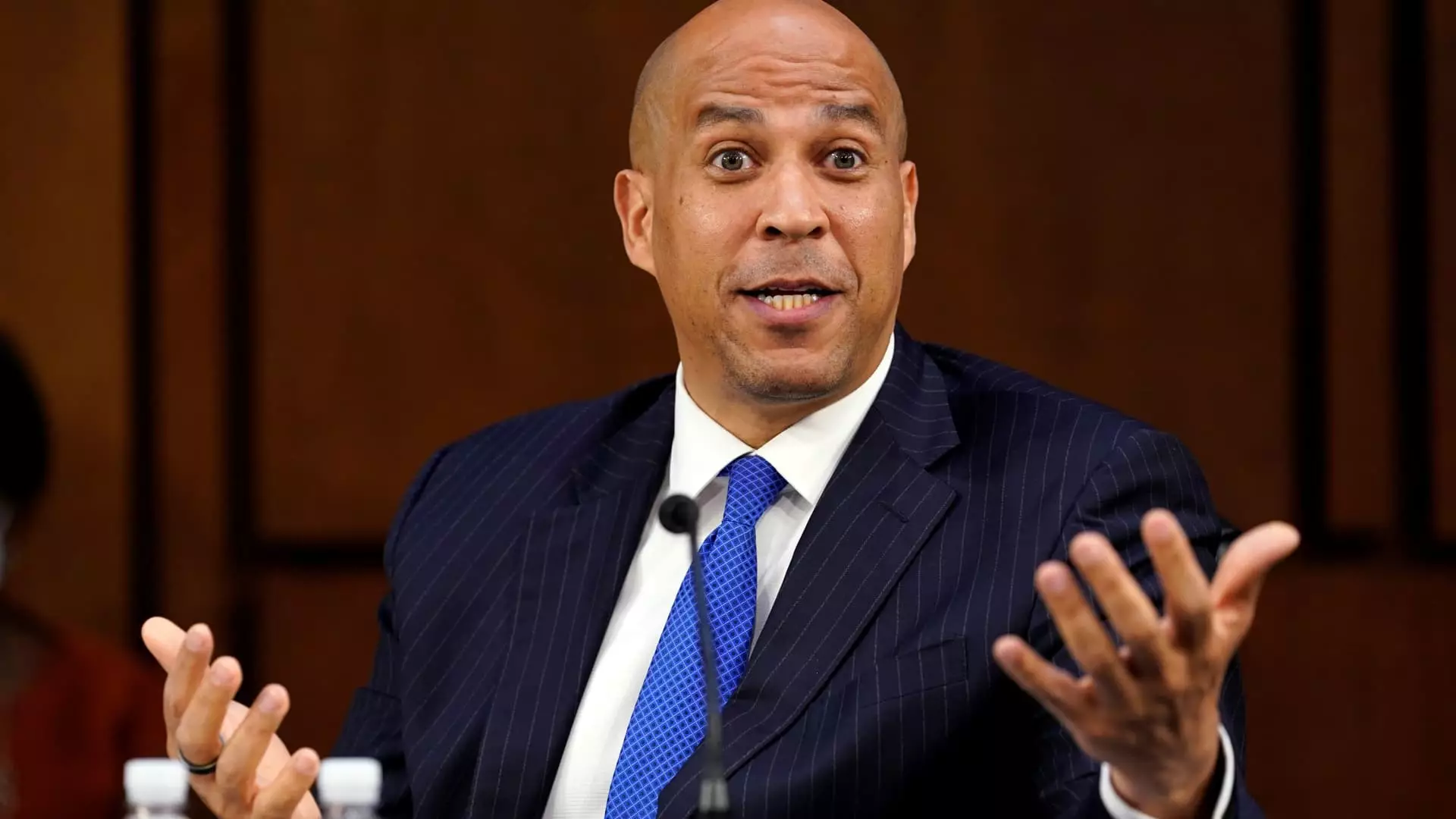In today’s political milieu, where colossal wealth often intertwines with policy-making, the stance taken by public figures resonates profoundly. Senator Cory Booker’s recent comments regarding Elon Musk not only give us a peek into the complex interplay between politics and corporate influence but encapsulate a critical observation about the value of integrity in political campaigning. An invitation to innovate and contribute positively to society is compelling; however, it comes tethered to the necessity of scrutinizing motives and the implications of accepting trending financial support from controversial figures.
When Booker outright refused Musk’s financial backing, he did more than just establish boundaries; he propelled a dialogue centered around a significant GOP-backed spending bill that threatens to alter the economic landscape for many Americans. This legislative measure is deemed “disastrous” by Booker, who articulates a fundamental belief that caring for the long-term economic well-being of the nation should transcend party alliances. His approach signifies a commendable pivot towards prioritizing collective welfare over opportunistic financial gain—a stance that needs to be widely echoed in political discussions.
The Moral Quandary of Accepting Wealth
The political arena is riddled with ethical dilemmas, especially when candidate funding is a pivotal component of campaign strategies. While Musk’s innovations are indisputable, his volatile interactions and past connections with controversial figures—from former President Trump to conspiracy theorists—raise caution flags. Senators like Booker are right to forsake financial entanglements with individuals whose involvement could compromise their moral and ethical standings. Acceptance of such funds could inadvertently imply an endorsement of Musk’s erratic behavior or the peculiar agendas that often accompany his tweets.
By urging Musk to engage substantively in ongoing political discussions rather than observing from the sidelines, Booker tactfully reframes the narrative. He is advocating for responsible civic engagement from individuals whose voices carry significant weight due to their wealth and influence. Inviting such figures to leverage their resources for progressive causes rather than merely financial contributions invites a broader, more constructive discussion on civic responsibility.
A Call for Down-to-Earth Activism
The contrast between campaigning solely on digital platforms—highlighted by Musk’s contentious interactions on social media—and sincere grassroots activism could not be more pronounced. As the recent spat between Musk and Trump illustrates, banter doesn’t equate to involvement. Instead of antagonistic interaction on social media, Booker advocates for tangible action, one that resonates with a substantial portion of the American populace. “Get involved right now in a more substantive way,” he implores, highlighting the disconnect that exists between social media discourse and tangible political engagement.
This distinction further solidifies Booker’s position as one of accountability and authentic representation in a space where many have strayed. The tech mogul’s provocative remarks about critical pieces of legislation establish a narrative that begs for constructive discourse. However, rhetoric devoid of substantial action becomes meaningless in a political climate that requires collaborative efforts aimed at dismantling harmful policy.
Decoding the Legislative Terrain
The “One Big Beautiful Bill Act,” which has sparked outcries from Democrat circles, is a prime example of the growing chasm between socio-economic realities and legislative processes. By undermining crucial safety nets like Medicaid and imposing work requirements that target our most vulnerable citizens, this bill elucidates a troubling trend in policy-making—favoring economic gain for the few over welfare for the many. Musk’s critique of the bill resonated with apprehensions that many Americans feel, yet it remains muddied under the context of his broader political affiliations and personal conflicts with Trump.
Senator Booker’s insistence that average Americans should understand the bill’s adverse implications reinforces a dire need for vigilance. Sculpting public opinion through education and grassroots activism becomes imperative to prevent harmful policies from prospering and to safeguard the principles of equity and justice that we should collectively champion.
In light of these dialogues, it becomes clear: fostering a political environment free from the fetters of sordid financial influences is imperative for cultivating genuine progressivism. As the complexities of modern governance unfold, calls for integrity and civic responsibility need to take center stage, overriding the temptation to yield to personal gain.


Leave a Reply